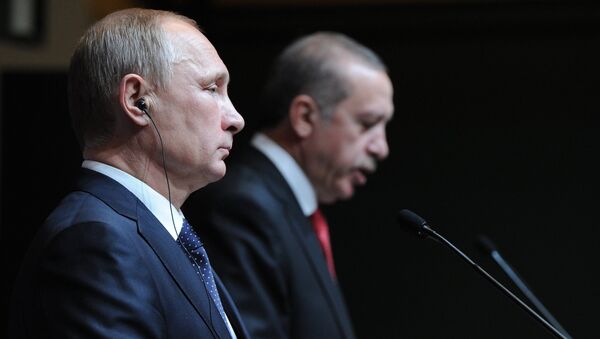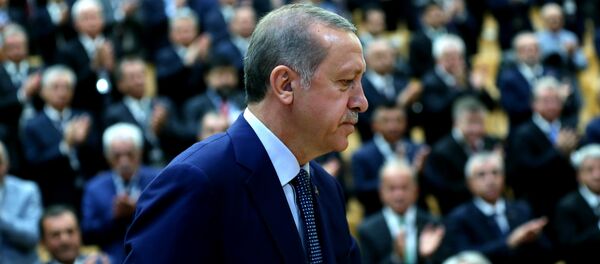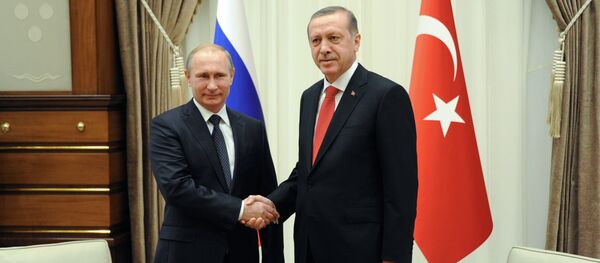Turkey, long accused of supporting Islamic extremists, has also suffered at the hands of terrorists, including a June 28 attack on Istanbul's Ataturk International Airport that killed 40 people, which Turkish authorities attributed to Daesh.
"Erdogan realized months ago that the initial plan of toppling [Syrian President] Bashar Assad and replacing him with a Muslim Brotherhood-friendly, Turkey-friendly proxy… is failing," geopolitical analyst Eric Draitser told Sputnik. "Turkey, having been a major supplier of weapons into the hands of terrorists inside of Syria, is going to likely cut a deal with Putin."
Any such deal, Draitser noted, could help disrupt the proverbial "pipelines" that have been flooding Syria with arms, funds and foreign fighters to the benefit of Daesh and other anti-government extremist groups.
This could have implications for the United States and its European and Sunni state allies, Draitser suggested, who have relied on Turkey as a conduit in their effort to topple the Syrian government.
Draitser added that it remains to be seen, however, if Turkey is truly willing to cease any relations with Daesh, including involvement in illicit oil trading that has benefited both Ankara and the extremists.
"Turkey and Russia working together can actually make very significant inroads into undercutting and potentially destroying the Islamic State," Draitser claimed.
Foreign affairs analyst and author Joe Lauria told Sputnik that Erdogan will likely make some concessions to Putin, although any agreements reached will likely be short-lived.
Daesh has turned on Erdogan, Lauria explained, and the Turkish economy was hit hard after relations with Moscow were strained by downing the Russian combat jet.
It is too early, Lauria admonished, to believe Ankara is prepared to join "the multipolar world" and turn its back on the United States, NATO and the European Union.
"I doubt Moscow, Tehran and Damascus fully trust Erdogan’s overtures as a long-term commitment, willing as they are to hear him out," Lauria noted.
US military analyst and historian Col. Douglas Macgregor told Sputnik that Erdogan will feign friendship and focus on short-term tactics, but his strategic goals as a Sunni Islamist will not change.
"However, he's [Erdogan] keenly aware of his limitations and is now practicing economy of enemies," Macgregor stated. "As a result, he's opting for temporary arrangements with Moscow and Israel while he consolidates his power at home."
Erdogan, Macgregor argued, is smart enough to know he cannot be too belligerent when the environment is not conducive, so the Turkish president will likely postpone his support for extremists until conditions at home and abroad are more favorable.
On Monday, Russian Deputy Foreign Minister Mikhail Bogdanov and his Turkish counterpart Umit Yalcin expressed a readiness to revive cooperation on resolving the Syrian crisis, the Russian Foreign Ministry said in a statement.
Ankara and Moscow ended seven months of strained relations in late June when Erdogan wrote a letter to Putin, apologizing for the November incident, and extending his condolences to the family of the pilot killed in the incident.
The Islamic State, also known as Daesh in Arabic, is a terrorist group banned in Russia, the United States and many other countries.






